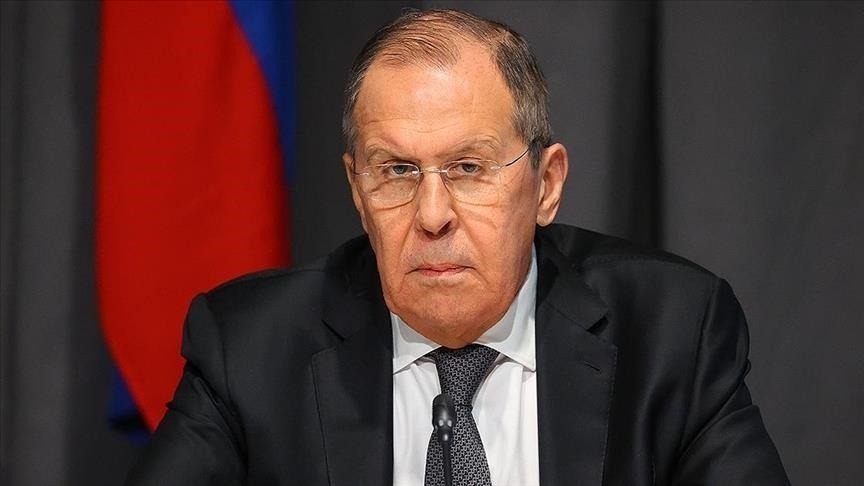Russian Foreign Minister Sergey Lavrov refuses ‘to interfere in work of Donetsk People’s Republic’s judicial system’.
Russia’s foreign minister on Friday refused to comment on the death sentences handed to three foreigners in the self-proclaimed Donetsk People’s Republic earlier this week.
“The crimes were committed on the territory of the DPR (Donetsk People’s Republic). The rest is a subject to speculation. I wouldn’t interfere in the work of the DPR’s judicial system,” Sergey Lavrov said at a news conference in Yerevan, Armenia’s capital.
On Thursday, Britons Aiden Aslin and Shaun Pinner, along with Moroccan Saladin Brahim, were sentenced to death for taking part in “hostilities on the side of the Ukrainian armed forces in the capacity of mercenaries.”
All of them pled guilty, asking for pardon and have said they plan to appeal the verdict.
Aslin and Pinner had earlier sent UK Prime Minister Boris Johnson a video message, asking him to help free them.
In a separate statement, Russian Foreign Ministry spokeswoman Maria Zakharova pointed out that under international humanitarian law, mercenaries are not entitled to prisoner of war status.
Zakharova said the British Embassy in Moscow regularly appealed to the Russian Foreign Ministry with requests to clarify the fate of the UK nationals, and was informed that they needed to discuss the matter with the breakaway regions.
She said UK authorities did not contact the separatists, despite a direct request from Aslin and Pinner, nor had they asked Moscow to take any action specifically on Aslin and Pinner.
“From this, we can draw an unambiguous conclusion that until now, the fate of these citizens has not really interested London. Now the UK leadership, clearly justifying itself, is trying to solve problems with loud statements,” she said.
Aslin is the first foreign fighter who was arrested and questioned by British counterterrorism authorities for his involvement with the PKK/YPG terror group on his return from Syria in 2017.
He was questioned under the UK’s Terrorism Act over a suspicion of engaging “in the preparation to fight against Daesh,” and possessing “articles for terrorist purposes in Iraq/Syria.”
Daesh is another name for the ISIS terror group.
Donetsk and Luhansk — both parts of Ukraine’s eastern Donbas region bordering Russia — were the scene of a Russian-backed insurgency starting in 2014 when Russia illegally annexed Ukraine’s Crimean Peninsula.
On the eve of Russia starting the Ukraine war this Feb. 24, President Vladimir Putin recognized the “independence” of Donetsk and Luhansk.
As with Crimea, all of Donbas is still internationally recognized as Ukrainian territory, and the country’s armed forces continue to fight for it.
-AA

